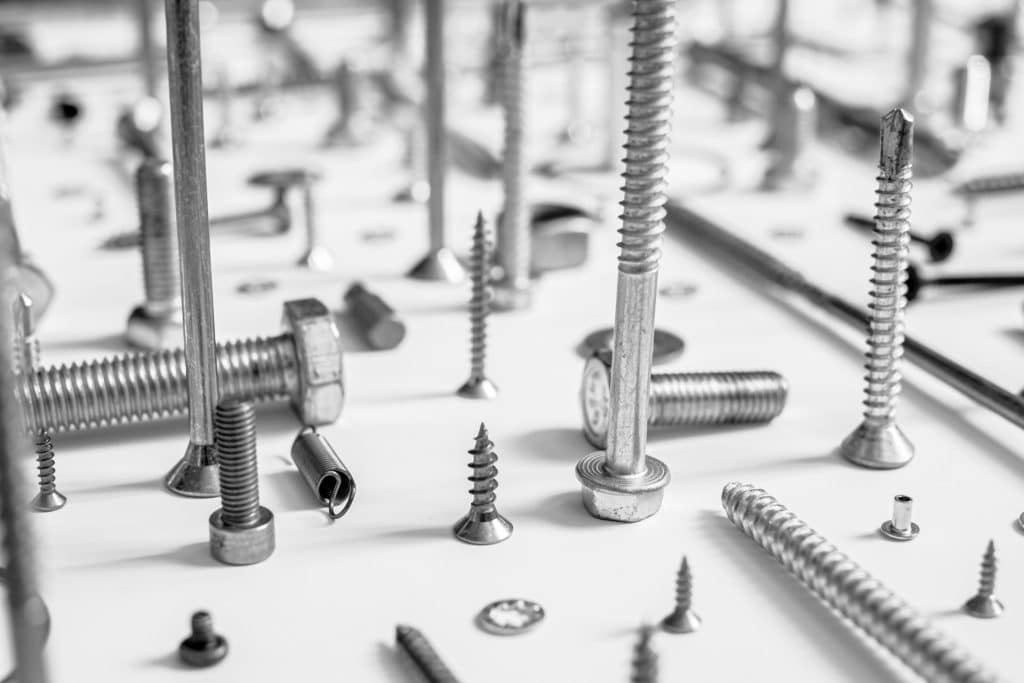If you’re in the market for bolts and nuts, you might be surprised to learn just how many types there are to choose from. With so many sizes, applications, features, designs, materials, coatings, and SKU names, it’s easy to get overwhelmed. Luckily, you can trust Fastening Specialists to guide you through the process and help you find the perfect fastenings for your needs.
As a trusted wholesale distributor for over 65 years, Fastening Specialists is the go-to source for all your fastening needs. We’re specialists in this field, serving a long list of industries with the best in product value, insight, code expertise, and order fulfillment. Whether you need bolts and nuts for construction, automotive, or any other application, we have the expertise and selection to help you get the job done right.
So whether you’re a seasoned professional or a DIY enthusiast, trust Fastening Specialists to provide you with the best in bolts and nuts. Our team of experts is always available to provide advice and best use-cases, but always check with local building codes and engineers for correct usage instructions.
Types of Bolts
When it comes to fastening two or more objects together, bolts are a go-to solution. Bolts are threaded fasteners that feature an external male thread and require a nut to fasten parts together. Here are some common types of bolts and their features:
Carriage Bolts
Carriage bolts, also known as coach bolts, feature a smooth, dome-shaped head and a square shank that prevents the bolt from turning. These bolts are commonly used in wood construction.
Hex Bolts
Hex bolts, also known as hexagonal head bolts, feature a hexagonal head and are driven with a wrench. These bolts are available in steel and stainless steel materials and come in various sizes and lengths.
U-Bolts
U-bolts, as the name suggests, are shaped like the letter U and feature threaded ends that are used to secure pipes and tubes. These bolts are commonly used in construction and come in various thread sizes and grip lengths.
Lag Bolts
Lag bolts, also known as wood screws, feature a hex head and are used to fasten wood to wood or wood to metal. These bolts are available in various sizes and lengths and are commonly used in construction.
Eye Bolts
Eye bolts feature a loop at one end and are used for lifting heavy objects. These bolts come in various sizes and materials and are commonly used in the construction and manufacturing industries.
At Fastening Specialists, we understand that choosing the right type of bolt can be overwhelming. As a trusted wholesale distributor for over 65 years, we are specialists in this field and can provide you with the best in product value, insight, code expertise, and order fulfillment. The expert gives you so much more value. Serving a long list of industries, you can trust us for all your fastening needs.
Remember, the team at Fastening Specialists provides advice and best use-cases, but always check with local building codes and engineers for correct usage instructions.
Types of Nuts
When it comes to fastenings, nuts are just as important as bolts. Nuts are threaded fasteners with a hole that usually goes with a mating bolt to fasten parts together. Nuts come in various shapes, sizes, and materials, and each type has its own specific application. In this section, we will discuss the most common types of nuts.
Hex Nuts
Hex nuts are the most commonly used nuts in construction, machinery, and automotive industries. They are named after their six-sided hexagonal shape and are used with bolts and screws with matching threading. Hex nuts come in various materials such as steel, stainless steel, and brass, and are available in different sizes to fit different bolts and screws.
Lock Nuts
Lock nuts are used to prevent loosening due to vibration or torque. They have a nylon insert that provides a locking feature, which grips the threads of the bolt or screw. Lock nuts are available in different materials such as metal and plastic, and are commonly used in automotive and aerospace industries.
Wing Nuts
Wing nuts are designed for easy hand-tightening and are commonly used in applications where frequent adjustments are required. They have two wings on opposite sides, which allow for easy gripping and turning. Wing nuts are available in metal and plastic materials, and are commonly used in furniture and lighting applications.
Flange Nuts
Flange nuts have a wide base that acts as a washer, providing a larger surface area for better grip and distribution of pressure. They are commonly used in applications where the nut needs to be locked in place, such as automotive and machinery industries. Flange nuts are available in different materials such as steel and stainless steel, and are available in different sizes.
Cap Nuts
Cap nuts, also known as acorn nuts, have a domed top that provides protection and a finished look. They are commonly used in applications where the exposed end of the bolt needs to be covered. Cap nuts are available in different materials such as steel, stainless steel, and brass, and are available in different sizes.
Fastening Specialists is a trusted wholesale distributor of nuts and bolts, serving a long list of industries for over 65 years. With so many sizes, applications, features, designs, materials, coatings, and SKU names, we know that fastenings can be overwhelming. That’s why we are specialists in this field, providing the best in product value, insight, code expertise, and order fulfillment. Trust us for all your fastening needs.
The team at Fastening Specialists provides advice and best use-cases, but always check with local building codes and engineers for correct usage instructions.
Material and Strength
Fasteners come in different materials, each with its own set of properties. The material used in a bolt or nut determines its strength, corrosion resistance, and other characteristics. In this section, we will discuss the most common materials used in fasteners and their respective strengths.
Metals
Metals are the most commonly used materials for fasteners. Steel, stainless steel, and brass are popular metals used in bolts and nuts. Steel is strong and durable, making it suitable for heavy-duty applications. Stainless steel, on the other hand, is corrosion-resistant, making it ideal for outdoor applications. Brass is often used in decorative applications due to its attractive appearance.
Non-Metals
Plastic and nylon are non-metal fastener materials that are lightweight and corrosion-resistant. They are often used in applications where metal fasteners are not suitable due to their properties. However, they are not as strong as metal fasteners and are not recommended for heavy-duty applications.
Grades and Standards
Fasteners are classified into different grades and standards based on their strength and other properties. The most common grades are grade 2, grade 5, and grade 8. Grade 2 bolts are low-strength bolts suitable for general applications, while grade 5 bolts are medium-strength bolts used in automotive applications. Grade 8 bolts are high-strength bolts used in heavy-duty applications.
Fastening Specialists is a trusted wholesale distributor of fasteners for over 65 years. As specialists in this field, we provide the best in product value, insight, code expertise, and order fulfillment. With so many sizes, applications, features, designs, materials, coatings, and SKU names, we know that fastenings can be overwhelming. Serving a long list of industries, you can trust us for all your fastening needs.
The team at Fastening Specialists provides advice and best use-cases, but always check with local building codes and engineers for correct usage instructions.
Bolt and Nut Applications
When it comes to bolt and nut applications, there are many different industries and use cases that require these fasteners. In this section, we will explore some of the most common applications for bolts and nuts, including construction and structural, automotive and machinery, and furniture and decor.
Construction and Structural
Construction and structural fasteners are used in heavy-duty applications that require strength and durability. These applications include building and bridge construction, as well as other large-scale construction projects. Bolt and nut fasteners used in construction and structural applications are designed to withstand high loads and resist fatigue and vibration. They may also be coated to prevent corrosion and other forms of damage.
Automotive and Machinery
Bolt and nut fasteners are also commonly used in automotive and machinery applications. These fasteners are designed to withstand extreme temperatures, high loads, and vibration. Lock nuts, tee nuts, and wing nuts are often used in automotive and mechanical applications, while carriage bolts are commonly used in machinery applications. These fasteners may also be coated to prevent corrosion and other forms of damage.
Furniture and Decor
Bolt and nut fasteners are also used in furniture and decor applications, where they serve both functional and decorative purposes. Wing nuts and carriage bolts may be used to fasten furniture legs and other components, while decorative nuts and bolts may be used as accents on furniture and other decorative items.
As a trusted wholesale distributor for over 65 years, Fastening Specialists is the best option for all your fastening needs. We are specialists in this field, serving a long list of industries with the best in product value, insight, code expertise, and order fulfillment. With so many sizes, applications, features, designs, materials, coatings, and SKU names, we know that fastenings can be overwhelming. The expert gives you so much more value.
Remember to always check with local building codes and engineers for correct usage instructions. The team at Fastening Specialists provides advice and best use-cases to help you make informed decisions.
Installation and Measurement
When it comes to installing bolts and nuts, there are a few important factors to consider. Proper measurement, installation techniques, and the right tools and accessories are all crucial for ensuring a secure and long-lasting connection.
Measuring Bolts and Nuts
Measuring bolts and nuts is an important step in the installation process. The diameter, thread pitch, length, and size of the bolt and nut all need to be considered. Using the wrong size or type of fastener can lead to a weak connection that can fail under stress.
To measure the diameter of a bolt, use a caliper or ruler to measure the distance across the widest part of the bolt shaft. The thread pitch refers to the distance between the threads on the bolt. To measure the thread pitch, use a thread gauge. The length of the bolt is measured from the base of the head to the end of the shaft.
Installation Techniques
There are several installation techniques that can be used to ensure a secure connection. One common method is to use pre-drilled holes in the materials being joined. This allows the bolt to pass through the hole and be secured with a nut on the other side. Another technique is to use a clamping force to hold the materials together. This can be achieved using a torque wrench or socket wrench to tighten the nut to the appropriate level.
Tools and Accessories
Having the right tools and accessories is essential for installing bolts and nuts. A torque wrench or socket wrench can be used to tighten the nut to the correct level of torque. Washers can also be used to distribute the clamping force more evenly across the surface of the material being joined.
As a trusted wholesale distributor for over 65 years, Fastening Specialists is the go-to source for all of your fastening needs. With a wide range of sizes, applications, features, designs, materials, coatings, and SKU names, we know that fastenings can be overwhelming. Serving a long list of industries, you can trust THE specialists for the best in product value, insight, code expertise, and order fulfillment. Check out our selection of bolts and nuts today to find the perfect fastening solution for your project.
The team at Fastening Specialists provides advice and best use-cases, but always check with local building codes and engineers for correct usage instructions.

